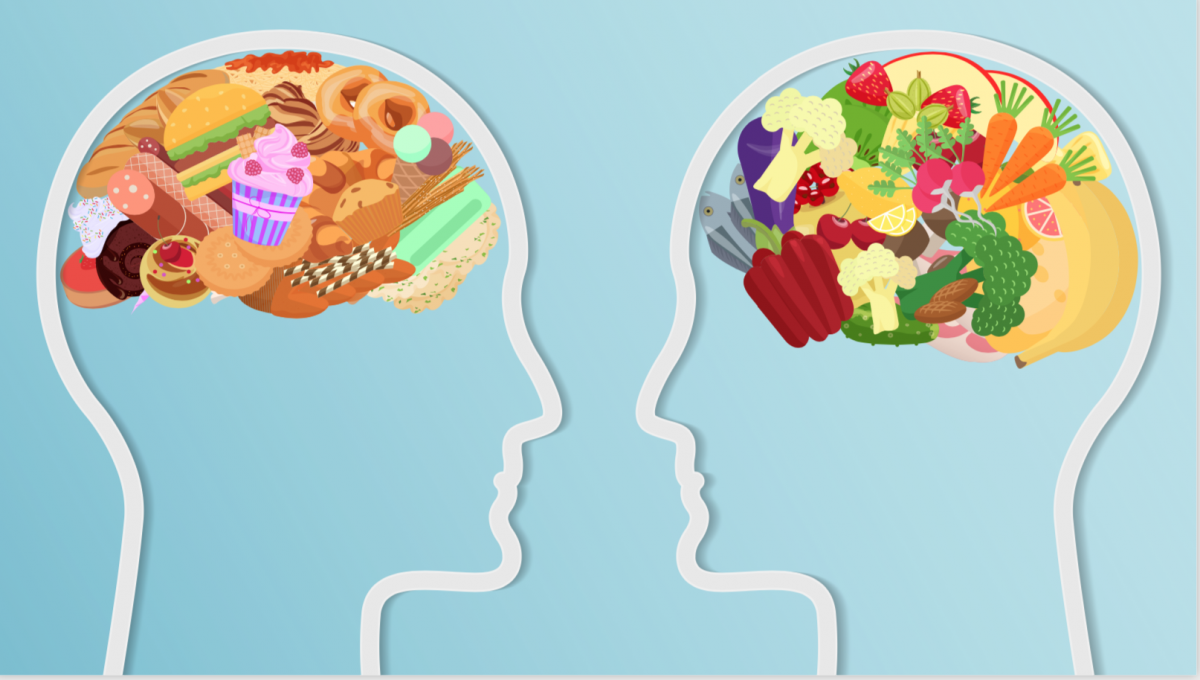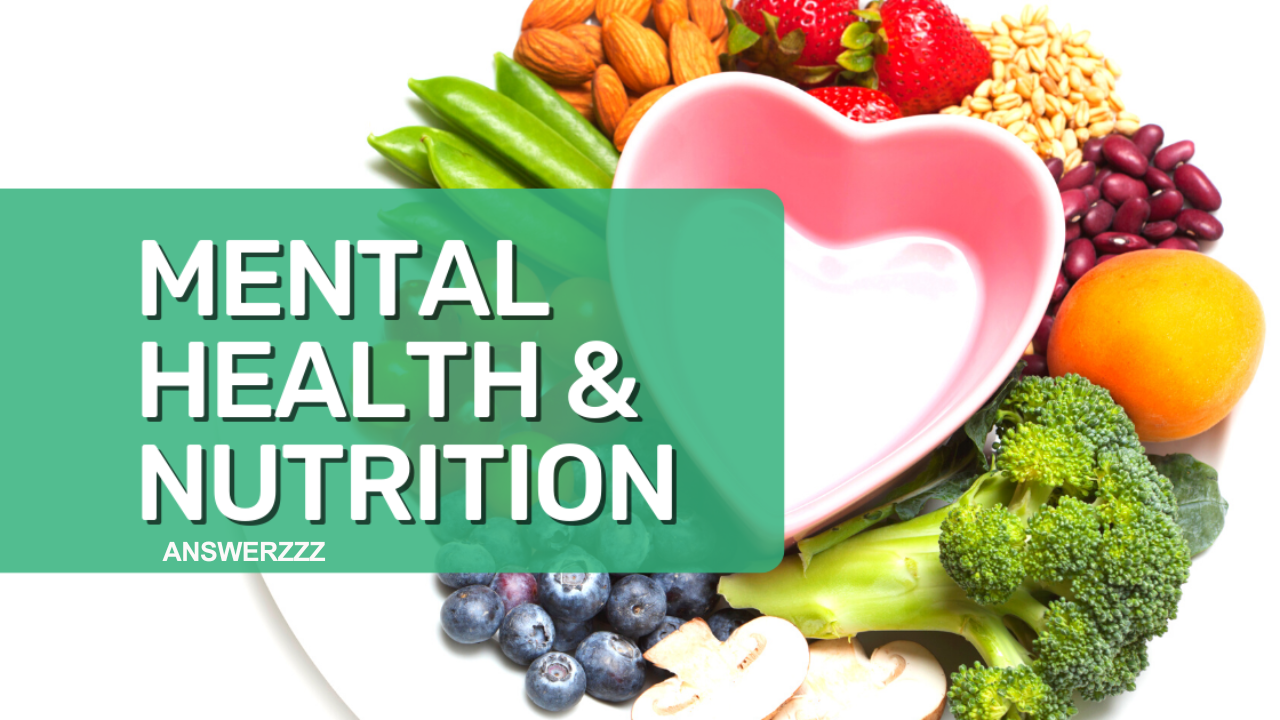In recent years, mental health has taken center stage in discussions about overall well-being. From dealing with stress and anxiety to combating severe conditions like depression, the focus has often been on therapy, medication, and mindfulness. However, one vital component is often overlooked: nutrition. Emerging research highlights that what we eat has a profound effect on our mental health. This article delves into the critical role nutrition plays in enhancing mental well-being and offers insights into how dietary changes can make a tangible difference.
The Connection Between Nutrition and Mental Health
Our brain, like every other organ in our body, relies on nutrients to function optimally. Poor nutrition can lead to imbalances in brain chemicals, inflammation, and oxidative stress, all of which contribute to mental health issues. Conversely, a well-balanced diet can improve mood, sharpen memory, and even alleviate symptoms of mental illnesses.
The gut-brain axis, a two-way communication system between our digestive system and brain, further underscores this connection. The gut houses trillions of microorganisms collectively known as the gut microbiome. These microorganisms play a significant role in producing neurotransmitters such as serotonin, which regulates mood. About 90% of serotonin is produced in the gut, making gut health crucial for mental stability.

Key Nutrients for Mental Health
Certain nutrients are particularly beneficial for mental well-being. Here’s a closer look:
- Omega-3 Fatty Acids: Found in fatty fish, walnuts, flaxseeds, and chia seeds, omega-3 fatty acids are essential for brain health. They help build cell membranes and facilitate communication between brain cells. Studies have shown that individuals with depression often have lower levels of omega-3s, and supplementation can improve symptoms.
- B Vitamins: Vitamins B6, B9 (folate), and B12 are vital for producing and regulating neurotransmitters. Low levels of these vitamins are linked to depression and cognitive decline. Foods like leafy greens, eggs, fortified cereals, and legumes are excellent sources.
- Vitamin D: Often referred to as the “sunshine vitamin,” vitamin D plays a critical role in mood regulation. Deficiency has been associated with depression and seasonal affective disorder (SAD). While sunlight is a primary source, vitamin D can also be found in fatty fish, egg yolks, and fortified foods.
- Magnesium: Magnesium is a natural stress reliever that helps regulate the hypothalamic-pituitary-adrenal (HPA) axis, the system responsible for our stress response. Foods rich in magnesium include nuts, seeds, whole grains, and leafy greens.
- Zinc: Zinc supports brain function and the immune system. A deficiency has been linked to depression, and supplementation has shown promise in improving symptoms. Sources include meat, shellfish, beans, and nuts.
- Probiotics and Prebiotics: Probiotics (found in yogurt, kefir, and fermented foods) and prebiotics (found in fiber-rich foods like bananas, onions, and garlic) support a healthy gut microbiome, which in turn benefits mental health.
Diets That Promote Mental Health
Certain dietary patterns have been shown to improve mental health outcomes. Here are some of the most effective:
- Mediterranean Diet: Rich in fruits, vegetables, whole grains, nuts, seeds, and olive oil, the Mediterranean diet emphasizes natural, unprocessed foods. Studies have linked this diet to lower rates of depression and anxiety, likely due to its anti-inflammatory and antioxidant properties.
- DASH Diet: The Dietary Approaches to Stop Hypertension (DASH) diet focuses on reducing sodium and increasing intake of whole foods, including fruits, vegetables, lean proteins, and whole grains. It’s not only heart-healthy but also beneficial for mental well-being.
- Plant-Based Diets: Diets that prioritize plant-based foods, such as vegetarian or vegan diets, are rich in fiber, antioxidants, and nutrients that support brain health. However, care must be taken to avoid deficiencies in B12, iron, and omega-3 fatty acids.
Foods to Avoid
Just as some foods boost mental health, others can negatively impact it. These include:

- Sugar: High sugar intake can lead to spikes and crashes in blood sugar levels, affecting mood and energy. It’s also associated with inflammation, which can contribute to mental health issues.
- Processed Foods: Foods high in trans fats, artificial additives, and preservatives can disrupt gut health and increase the risk of depression.
- Excessive Caffeine: While moderate caffeine consumption can enhance alertness, excessive intake may lead to anxiety, restlessness, and insomnia.
- Alcohol: Alcohol is a depressant that can interfere with neurotransmitter balance and worsen mood disorders.
Practical Tips for Improving Mental Health Through Nutrition
- Start Small: Making significant dietary changes can be overwhelming. Begin by incorporating one or two nutrient-rich foods into your diet each week.
- Plan Your Meals: Preparing meals in advance ensures you have healthy options readily available, reducing the temptation to opt for unhealthy choices.
- Stay Hydrated: Dehydration can lead to fatigue and difficulty concentrating. Aim for at least 8 glasses of water daily.
- Listen to Your Body: Everyone’s nutritional needs are different. Pay attention to how certain foods make you feel and adjust accordingly.
- Seek Professional Guidance: If you’re struggling to improve your diet, consider consulting a registered dietitian or nutritionist who can tailor recommendations to your needs.
Managing Stress: Effective Techniques for a Healthier Mind and Body
The Science Behind Food and Mood
The relationship between nutrition and mental health isn’t just anecdotal; it’s backed by science. Here are a few key studies:
- The SMILES Trial: This groundbreaking study demonstrated that a Mediterranean-style diet significantly reduced symptoms of depression in participants compared to a control group receiving social support.
- Gut Microbiota and Mental Health: Research published in Nature Reviews Neuroscience highlights how the gut microbiome influences brain function and mood, emphasizing the importance of gut-friendly foods.
- Dietary Patterns and Depression: A meta-analysis published in Psychiatry Research found that diets high in fruits, vegetables, and whole grains were associated with a lower risk of depression, while Western diets high in processed foods and sugar increased the risk.
Special Considerations

- Cultural and Personal Preferences: Diets should respect cultural traditions and personal preferences to ensure sustainability.
- Economic Barriers: Access to fresh, healthy food can be challenging for some. Community programs, food banks, and budget-friendly meal planning can help bridge this gap.
- Mental Health Conditions: While nutrition is an essential component, it’s not a standalone solution. Mental health conditions often require a combination of therapy, medication, and lifestyle changes.
The Future of Nutritional Psychiatry
Nutritional psychiatry, a field focused on the impact of diet on mental health, is gaining traction. Researchers are exploring personalized nutrition plans based on genetic, metabolic, and microbiome profiles to optimize mental well-being. As science progresses, we may see tailored dietary interventions becoming a standard part of mental health care.
How Nutrition Affects Your Skin: Top Foods for a Glowing Complexion
The link between nutrition and mental health is undeniable. A balanced diet rich in essential nutrients not only supports physical health but also promotes emotional and psychological well-being. While dietary changes alone may not cure mental health conditions, they can play a significant role in prevention and management. By making mindful food choices, we empower ourselves to lead healthier, happier lives.



